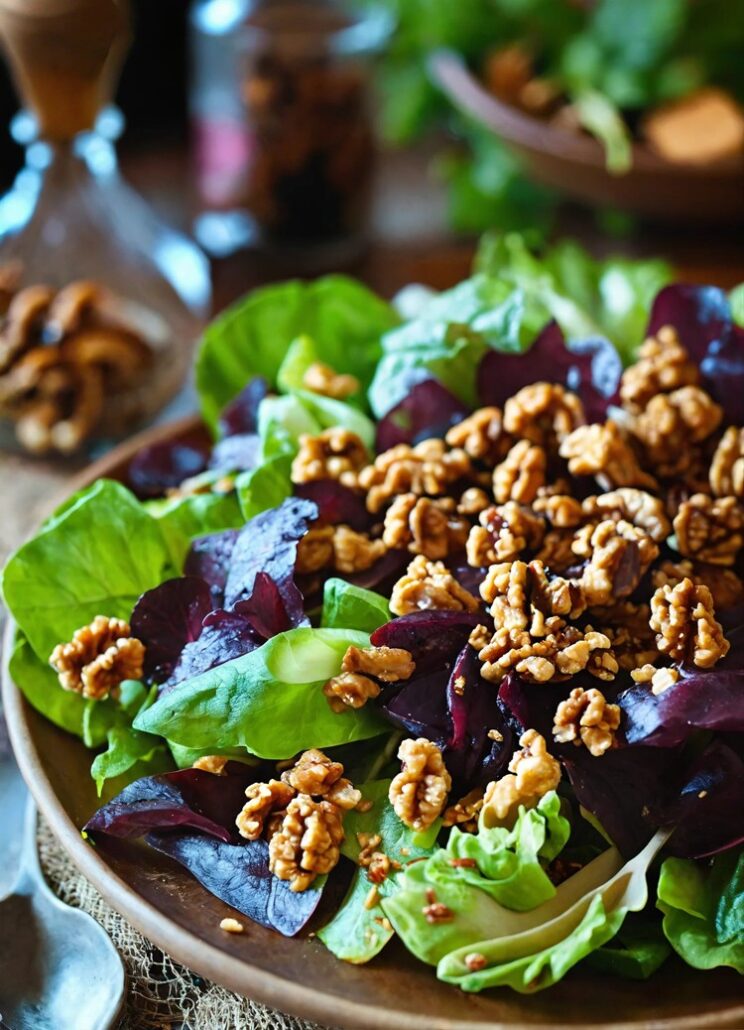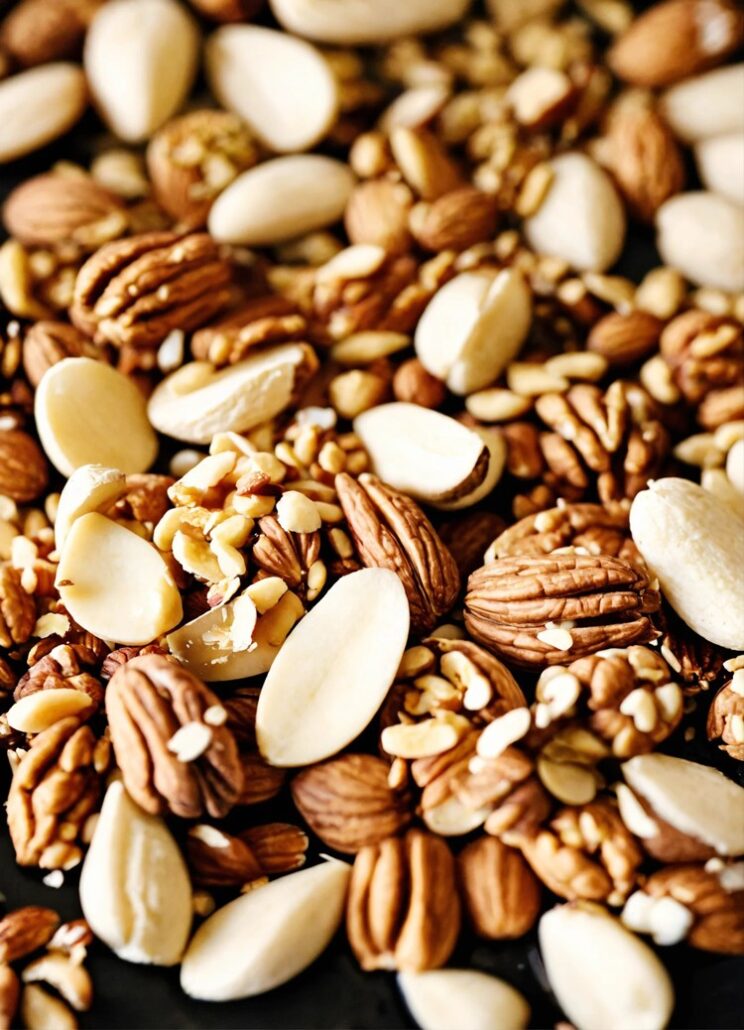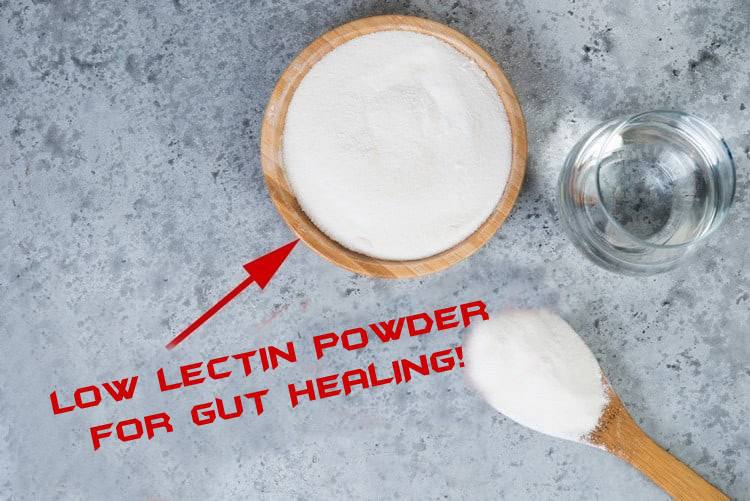Low Lectin Nuts – A Simple & Powerful Guide
Have you ever heard of lectins and their potential harm to your health?
We will explore what lectins are and why they are considered harmful.
We will also dive into the world of low lectin nuts, their benefits, and the best ones to incorporate into your diet.
From improved digestion to reduced inflammation, these nuts offer a range of health benefits.
Stay tuned to learn how to enjoy these nutritious nuts and any potential risks to be aware of.
What Are Low Lectin Nuts?
Low lectin nuts are a nutritious and digestion-friendly option for those looking to reduce their lectin intake while still enjoying the benefits of nuts.

These nuts, which include varieties such as almonds without the skin and walnuts, are rich in healthy fats, fiber, vitamins, and minerals. Not only do they offer a satisfying crunch and delicious flavor, but they also support gut health and aid in digestion.
For individuals with sensitivities to lectins, incorporating low lectin nuts into their diet can be a smart choice. Whether eaten on their own as a snack or added to dishes for extra nutrition, these nuts are versatile and a great addition to a balanced diet.
Tired of eating the same old stuff?
Did you know food variation can help you get more nutrients?
Paleo is very similar to low lectin, and can be adapted to low lectin with minimal effort. They generally recommend eating whole foods like meats, fruits, vegetables, and nuts. Therefore, I recommend checking out paleo recipes like the ones below!
Basic Paleo Recipes
Explore easy, nutritious paleo recipes to make your daily meals more exciting.
Learn MorePaleo Snacks
Discover quick and healthy paleo snacks to keep you energized throughout the day.
Learn MoreHow To Lower Lectins In Nuts
There are several ways you may be able to lower the amount of lectins in nuts. The first is cooking them. Nuts are often roasted, and heat has been shown to reduce the number of lectins in foods.
You can also soak and sprout the nuts, which lowers the amount of anti-nutrients such as lectins and phytic acid. This can increase the nutrient availability of the nuts, making them even more nutritious to eat, for example by reducing inhibitors of mineral absorption.

What Are the Best Low Lectin Nuts to Eat?
There are several nuts which have shown to not contain lectins in research: ¹ ²
- Almonds (without the skin)
- Walnuts
There are many other nuts that are considered not to be high lectin nuts, such as macadamia nuts, Brazil nuts, hazelnuts, and pistachios, and while this seems correct, we have not seen specific lectin research details on them.
These nuts also have powerful nutrient profiles, for example Brazil nuts are very high in selenium.
We would recommend trying them, assuming you are not sensitive or allergic to them, and only avoiding other nuts which are proven to be high in lectins if that makes sense for you. Eating a variety of nutrient-dense foods can provide you with a variety of nutrients, which can be difficult if you are eating a very restrictive diet!
What Are the Benefits of Eating Low Lectin Nuts?
Eating low lectin nuts offers a range of health benefits, including being fairly high in protein as well as containing healthy fats and essential nutrients. They support overall good health and can help lower inflammation.
These nuts are also a great source of plant-based protein. The essential nutrients like vitamin E, magnesium, and potassium present in nuts contribute to overall well-being.
Including low lectin nuts in a balanced diet can aid in weight management by promoting satiety and providing sustained energy, making them a smart snack choice for those looking to maintain a healthy lifestyle.
Are There Any Risks of Eating Low Lectin Nuts?
While low lectin nuts offer numerous health benefits, it’s essential to be aware of potential risks such as nut allergies and the importance of consuming them in moderation as part of a balanced diet.
Nut allergies are a significant concern for individuals with sensitivities to certain types of nuts. Consuming low lectin nuts without proper caution can trigger allergic reactions ranging from mild discomfort to severe anaphylaxis. It is crucial to read labels carefully and avoid nuts that may cause adverse effects.
Over-consumption of nuts, even those with low lectin content, can lead to unwanted weight gain and potential digestive issues due to their high fat and calorie content. Thus, incorporating these nuts sensibly in daily meals is key to harnessing their nutritional benefits without experiencing negative consequences.
Overall, being too restrictive in eating could negatively affect nutrient consumption.
What Are Lectins?
Lectins are a type of plant protein that can be found in many foods, with varying levels of lectin content. They are known for their potential impact on gut health and overall well-being.
These proteins have the ability to bind to cell membranes in the digestive tract, potentially disrupting the absorption of nutrients and causing inflammation in some individuals. Foods such as beans, grains, and nightshade vegetables like tomatoes and potatoes contain lectins.
Some experts suggest that consuming high levels of lectins may contribute to conditions such as leaky gut syndrome and autoimmune disorders. Perhaps more importantly, it seems that sensitivity to lectins can cause food sensitivity reactions that could drive up inflammation.
This has led to the popularity of lectin-free or low lectin diets, which focus on reducing or eliminating foods high in lectins to promote better gut health.
Why Are Lectins Considered Harmful?
Lectins are considered harmful due to their potential to interfere with digestion, nutrient absorption, and gut health, especially in individuals with lectin sensitivity.
These plant proteins have a unique ability to bind to cell membranes in the gut, potentially disrupting the natural process of nutrient absorption. For individuals with lectin sensitivity, this interference can lead to increased inflammation, bloating, and digestive discomfort.
Lectins may also contribute to gut permeability, commonly referred to as ‘leaky gut syndrome,’ which can allow harmful substances to pass through the intestinal barrier and into the bloodstream. Avoiding or reducing lectin consumption may be crucial for maintaining a healthy gut microbiome and overall digestive wellness.
How to Incorporate Low Lectin Nuts into Your Diet?
Incorporating low lectin nuts into your diet can be done in various ways, such as using them in meal prep ideas, applying cooking tips for enhanced flavors, or enjoying them as quick and healthy snack options.
You can use chopped blanched almonds as a coating on meat, as a lectin-free alternative to breading. You can also sprinkle them onto your salads or other dishes.
Roasting low lectin nuts with a touch of honey and spices can elevate their taste profile, making them an irresistible snack that provides both a satisfying crunch and a dose of healthy fats.
Stay tuned as we will add an article for high lectin nuts soon!
Resources:
1. http://medicinalplants-kr.org/
2. https://sciendo.com/article/10.1515/sjecr-2016-0031

